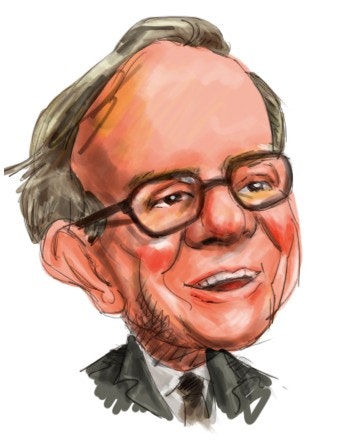According to the proponents of the Efficient Market Hypothesis, stock prices reflect all available information about companies and investors can’t beat the market indexes by stock picking. They say investors trying to find a secret formula are wasting their time because stock prices follow a random walk. Interestingly, this theory also implies that a monkey selecting stocks by throwing darts at a newspaper’s financial pages should perform as well as any star hedge fund manager who may or may not use inside information.

You could guess how this was such a huge relief for millions of stock market investors. Suddenly, one need not worry about timing or stock picking skills. Since all the information is incorporated into stock prices, there’s no need to do any research about the companies, or the macro economic developments, or the regulatory environment. Nothing, nada. Do you want to invest in an internet start-up that sells toys, with $30 million in revenue, $50 million in losses and $6 billion in market cap? Don’t worry. Markets are efficient. Just buy it, as simple as that.
In 1984, Warren Buffett gave a speech at the Columbia Business School, arguing that the superinvestors of Graham-and-Doddsville can beat the market by a huge margin. The “look for values with a significant margin of safety relative to prices” approach has been deemed out of date by college professors such as Eugene Fama. Yet Warren Buffett and several investors who took Ben Graham’s course managed to beat index funds by following the value approach.
Twenty six years ago Warren Buffett said that 9 investors independently investing in different companies achieved far superior returns than did index funds. He said:
“So these are nine records of “coin-flippers” from Graham-and-Doddsville. I haven’t selected them with hindsight from among thousands. It’s not like I am reciting to you the names of a bunch of lottery winners — people I had never heard of before they won the lottery. I selected these men years ago based upon their framework for investment decision-making. I knew what they had been taught and additionally I had some personal knowledge of their intellect, character, and temperament. It’s very important to understand that this group has assumed far less risk than average; note their record in years when the general market was weak. While they differ greatly in style, these investors are, mentally, always buying the business, not buying the stock. A few of them sometimes buy whole businesses. Far more often they simply buy small pieces of businesses. Their attitude, whether buying all or a tiny piece of a business, is the same. Some of them hold portfolios with dozens of stocks; others concentrate on a handful. But all exploit the difference between the market price of a business and its intrinsic value”
I’m convinced that there is much inefficiency in the market. These Graham-and-Doddsville investors have successfully exploited gaps between price and value. When the price of a stock can be influenced by a “herd” on Wall Street with prices set at the margin by the most emotional person, or the greediest person, or the most depressed person, it is hard to argue that the market always prices rationally. In fact, market prices are frequently nonsensical.”
Finally, here’s the quote of the month from Warren Buffett:
“Ships will sail around the world but the Flat Earth Society will flourish. There will continue to be wide discrepancies between price and value in the marketplace, and those who read their Graham & Dodd will continue to prosper.”


